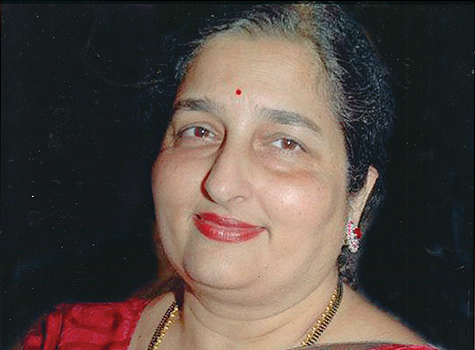By Mo Vidwans

What almost looks like an oxymoron statement because it seems self-contradicting, I will venture to say that it is possible to achieve a successful retirement with proper planning. This proper planning begins long before you ever think of retiring.
One of the key events of retirement is that the monthly income stream stops; a stream we usually have known and depended upon for a long time to support us and our families and all the events that usually ensue when we have a family. Now the young ones are on their own and we are left on our own and are required to support ourselves as per our desires and dreams.
 Assuming proper planning is done from the beginning, and we will have to define this later, it is not that difficult. What makes it harder is when we wake up in the middle of our career, say around the age of 50 or later, and realize that we haven’t much thought about retirement and how we would be supporting ourselves during that time.
Assuming proper planning is done from the beginning, and we will have to define this later, it is not that difficult. What makes it harder is when we wake up in the middle of our career, say around the age of 50 or later, and realize that we haven’t much thought about retirement and how we would be supporting ourselves during that time.
The right time to start saving and thinking about retirement is when your start working. Why would that be? As I have explained before, and so have some other articles in this magazine, the reason is the wonder of compounding. If you invest diligently for the first 10 years, say just $100 per week, and then even if you stop doing that after the first 10 years, you will have loads of money available to you for your retirement just because of the magic of compounding. That money grows and grows at a hefty rate and comes handy when the time comes for using it, usually after the age of 65. If it is invested in a tax-deductible program or in a ROTH, it is even better. Young folks, who are just starting really need to consider this point seriously. A careful thought given to put some money away for retirement, not to be touched until retirement, will go a long way to satisfy your retirement needs, potent desires and dreams too. Sometimes help is needed from a financial planner for such planning because it is difficult to imagine a life 40-50 years from now without some help.
That leads me to the next important aspect of retirement; namely that the money stream, whatever that is, is fixed and will not change unless you decide to do so. Let us imagine that, with a retirement somewhere between our age of 65 and 70, there still will be a life of 15 to 25 years left (if not 30) which is long time to support ourselves on our savings alone, perhaps with some help from Social Security. Two serious things happen in that period. Inflation never stops taking its toll and the medical expenses only go up as we age. Now living/surviving for so many years after retiring is a phenomenon that was not experienced by our older generation; their life expectancy was hardly a few years after they retired. This is one fact that social security banked on when it was started back in 1933-34 but that is not the case today.
Let us look at inflation first: a 2 percent inflation will double our cost of living in 35 years, a 3 percent inflation will double the cost of goods in 23 years and 5 percent inflation will double the cost of a gallon of milk in 14 years. Now you can see why the Federal Reserve is working feverishly to bring the current inflation down as fast as possible without going into a recession. Their goal is 2 percent inflation and they had succeeded in keeping it there for quite a while in the past. For us the impact is that we must account for all this in our planning.
Medical expenses: We all get the benefit of Medicare at the age of 65 and we must pay monthly premiums for that which are currently $170.10 per person. A recent study by Fidelity found that a couple retiring in 2020 will have to put out $295,000 out of pocket expenses in their lifetime on the average. This was an increase of 3.5 percent over 2019 figures. If any special needs develop then it could be on top of these numbers.
The idea here is not to scare anyone but to put a realistic picture in front so that we can start preparing and planning for it at an early age. By doing so we get a longer period for such preparation. We all know there are plenty of events we still have to plan for starting with the birth of a child to religious activities to college education to weddings to new cars to house maintenance; the list could be endless.
There are a few key things that every family must do. Have a good idea about your expenses (monthly/annually) and your income stream. This is the starting point, especially the expense list because that is one thing that you have complete control over but, generally, we can’t control the income stream that much. Secondly, even more important, take a good look at your health and give a serious thought as to how you can improve it and then maintain it.
So, buckle up. The ride can be bumpy but never impossible. More advance planning we can do, the better off we will be. What I see in my profession is a gross lack of understanding as to what is involved (especially when something is decades away) and how to overcome those obstacles. Given plenty of time, all those things are certainly possible, but nothing should be left to chance. Success comes only to those who are well prepared for it via hard work.
Mo Vidwans is an independent, board certified financial planner. For details visit, VidwansFinancial.com, call 984-888-0355 or write to: mpvidwans@yahoo.com



